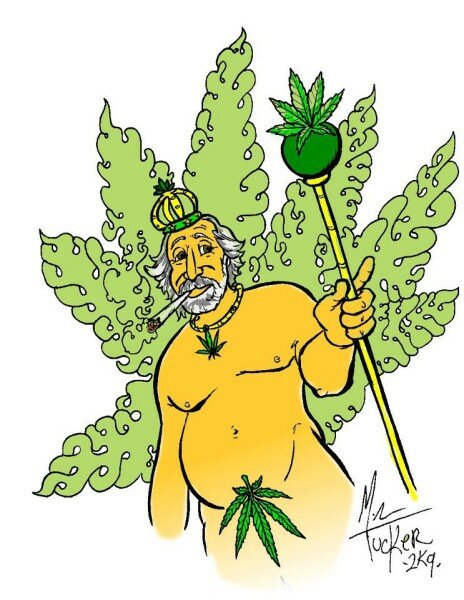
NIMBIN HEMP EMBASSY APPLAUDS POLICE DRUG CHIEF SPEAKING OUT
“When we heard on the news that the head of the NSW police drug squad, Detective Superintendent Nick Bingham, said he would like to see cautions given for all “use-possession-type drug offences”, we couldn’t believe our ears. Did someone spike the coffee?” says President Michael Balderstone.
“Good on him for speaking out and we believe he is talking on behalf of a lot of Police. They can tell who’s a real criminal and who isn’t, and they didn’t join up to waste their time on personal drug use.”
“The light at the end of the tunnel gets brighter every day for us at the moment and drug law reform is definitely back on the agenda. We may have to drag politicians into the conversation because you can be assured those who stand to lose from drug law reform will be lobbying them fiercely at the moment, terrified their unholy profits are at risk. Big Pharma, the alcohol industry and organised crime can all see their comfortable little monopolies days are numbered.”
“It all makes our 21st annual MardiGrass cannabis law reform gathering and rally in Nimbin on May 4 and 5, even more relevant. We are getting plenty of interest this year from all walks of life as the Reefer Madness myth is exposed. The dramatic cannabis law changes in America have set the ball rolling and it’s gathering momentum quickly.”
MardiGrass begins on May 1st this year when we march from the Lismore Court House soon after midday to deliver a petition to our elected State and Federal Pollies asking them to get with the times. Do they represent us or not!”
The still growing MardiGrass program is on www.nimbinmardigrass.com
Further info Nimbin HEMP Embassy
Drug squad chief calls for softened penalties
In an exclusive interview, the head of the NSW police drug squad says penalties should be softened for minor drug possession.
In a wide-ranging interview, Detective Superintendant Nick Bingham told triple j’s Hack program that police should move to a softer approach for policing personal drug use and possession offences.
Det Supt Bingham said he would like to see cautions given for all “use-possession-type offences”.
He said a cautioning program would move people away from the criminal justice system and into health programs, adding that being caught with a small amount of drugs has wide-ranging effects that impact on a person’s career.
“Therefore, that person wouldn’t have a criminal conviction for a use-or-possess offence,” he said.
“And a person who has made a mistake and has gone to a music festival and has been found with an ecstasy pill in their pocket by a drug dog wouldn’t have that criminal conviction hanging over his or her head.”
Det Supt Bingham said the cannabis cautioning program had proven there “is a better way of doing things”.
“It’s my understanding that most of the people who have been given the benefit of a cannabis caution and have been diverted to a help line don’t reoffend,” he said.
Mainstream debate
Dr Alex Wodak, the president of the Australian Drug Law Reform Foundation, told Hack that Det Supt Bingham’s comments should bring the subject into mainstream debate.
Dr Wodak is also a member of Australia 21, the organisation that last year released a report calling for an end to the war on drugs.
He said Det Supt Bingham’s position reflected the changing nature of the drug debate in Australia.
“Academics have been saying this sort of thing for years and with increasing confidence and increasing evidence to back that up,” he said.
“But it is another matter when a senior serving policeman says this sort of thing.”
Drug policy researchers like Dr Wodak are calling for a broader decriminalisation of illicit drugs and a more regulatory system.
But that is not what Det Supt Bingham believes. He said a regulatory system could be beneficial in relation to synthetic drugs but not traditional illicit drugs such as heroin.
Jane Sanders, the principal lawyer for Sydney’s Shopfront Youth Legal Centre, said Det Supt Bingham’s comments were “sensible and realistic”.
She said moving to a cautionary system for minor drug offences would free police to deal with “real crime”.
“There is less chance of people being stigmatised and drawn into the criminal justice system,” she said.
‘Punishment doesn’t fit crime’
Chris, who was caught with three ecstasy tablets at the Big Day Out five years ago, said the conviction ruined his livelihood.
He said he had finally completed his apprenticeship as a locksmith but the conviction meant he could not hold a security licence.
He lost his job and his toil as an apprentice went to waste.
“Do you think going out to a party with three pills should affect my livelihood? I’ve been punished for 10 years here,” he said.
“I’ve gone through my trade where I’ve earned first-year apprentice [wages of] $200 a week – did that for a year.
“Gone through all of that and finally got to where the money side of my career is – where you turn tradesman – and [I can't] do it.
“I don’t think the crime fitted the punishment in this circumstance.”
NSW Attorney-General Greg Smith would not comment on Det Supt Bingham’s comments specifically but told Hack in a statement: “Decriminalising of the use and/or possession of illicit drugs is not on the Government’s agenda.”
Police Minister Michael Gallacher also released a statement:
“Nationally, police enforce their respective state drug laws in a way that highlights the seriousness of participating in the toxic drug economy,” the statement said.
Pauline Wright from the Law Society backs the push.
She says the current legislation ruins careers.
“It can have a really quite devastating effect on people’s lives,” she said.
“They should focus their attention on the real criminals in this, who are manufacturing drugs, importing drugs, and really creating criminal havoc.”
http://www.abc.net.au/news/2013-04-17/drug-squad-commander-calls-for-drug-reform/4635620












